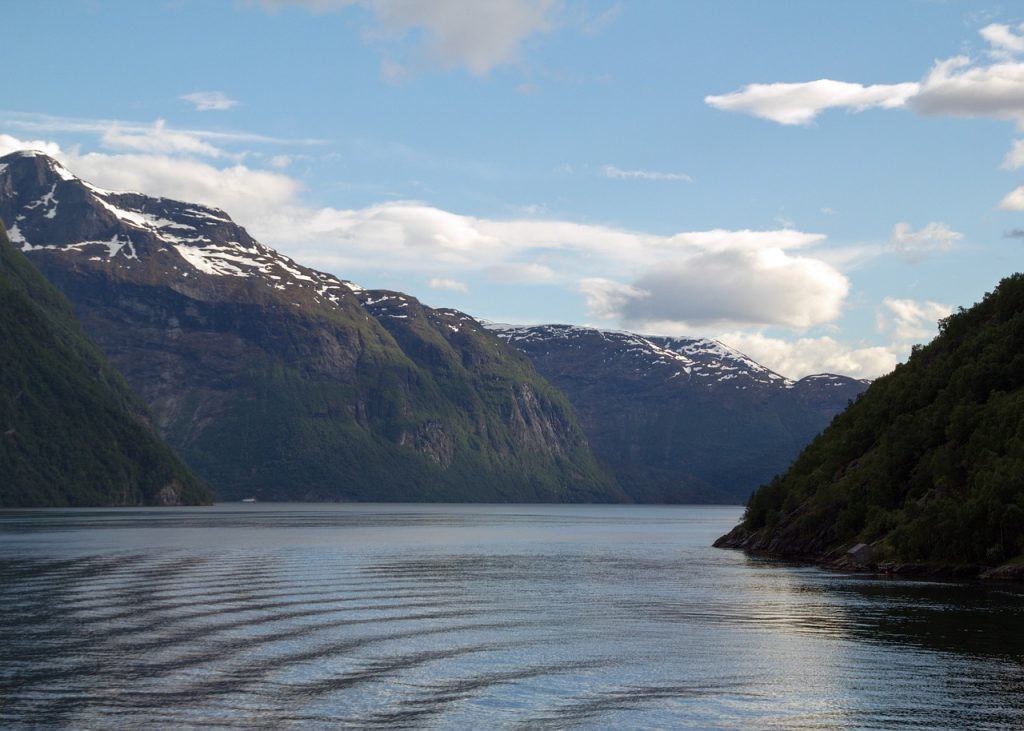Norway, a country of dramatic fjords, the magical Northern Lights, and timeless natural beauty, is a place that sees significant variation in weather conditions throughout the year. This comprehensive guide provides a detailed view of Norway’s weather patterns, climatic conditions, and the optimal times for visiting to make the most of your trip.
Norway Weather Forecast: A Broad Overview
Understanding the “Norway weather forecast” involves looking at the wide range of conditions across the country. Due to Norway’s large geographical span and varying topography, it experiences diverse weather patterns. From the temperate warmth of the coastline to the colder, harsher conditions of the mountainous regions and the far North, Norway’s weather is an intricate tapestry of contrasting elements.
Best Time to Visit Norway: Seasonal Attractions
Determining the “best time to visit Norway” really depends on what you want to experience. For those yearning for the Midnight Sun and the chance to engage in various outdoor activities, the summer months from June to August are an excellent choice. However, if witnessing the spectacular Northern Lights (Aurora Borealis) is the dream, then the period from late autumn to early spring offers the greatest opportunities.
Comprehending the Climate of Norway
The “climate in Norway” can be categorized into two broad types – coastal and inland. The coastal areas witness milder winters and cooler summers due to the North Atlantic Current’s influence, presenting a maritime climate. Conversely, the inland regions experience colder winters with plenty of snow and warmer summers, characteristic of a continental climate.
Weather in Oslo, Norway: Experiencing the Capital
Discussing the “weather in Oslo, Norway,” it’s worth noting that the capital city displays a warm-summer humid continental climate. Oslo enjoys pleasantly warm summers with temperatures occasionally soaring to 30°C. The winters can be rather cold and snowy, with temperatures frequently plunging below the freezing point.
Deciphering Average Weather in Norway
When referring to the “average weather in Norway,” it’s a delicate balance between mild conditions along the coastline and colder weather in the inland areas. The summer months see an average temperature of around 15-20°C. The winters are quite varied, with mild conditions persisting along the coast, while the interior and far north regions can get exceedingly cold.
The Specifics: Weather in Norway in July
For those curious about the “weather in Norway in July,” they will find that July is amongst the warmest months in Norway. The days are long and sunny, and the temperatures range between 15°C to 30°C, creating perfect conditions for exploring the outdoors and soaking in the spectacular natural beauty.
The Winter in Norway: A Snowy Wonderland
“Winter in Norway” can be an incredibly magical experience. While it can get extremely cold, with temperatures often dropping below the freezing point, it’s an amazing time to indulge in winter sports such as skiing or dog sledding. And of course, the prospect of witnessing the ethereal beauty of the Northern Lights adds to the allure of the Norwegian winter.
Weather in Bergen, Norway: A Rainy Picture
The “weather in Bergen, Norway,” showcases a typically maritime climate, with the city known for being one of the rainiest places in Norway. Bergen experiences mild, rainy winters and cool, relatively dry summers. If you’re planning to visit Bergen, don’t forget to pack your raincoat!
Norway Summer Temperature: The Season of Warmth
The “Norway summer temperature” is comfortably warm, with average temperatures around 15-20°C. However, in some regions, especially in the inland areas, temperatures can reach up to 30°C on particularly hot days. This is an ideal time for outdoor activities such as hiking, cycling, or taking a cruise through the mesmerizing fjords.
Northern Lights Forecast Norway: Glimpsing the Aurora Borealis
The “Northern Lights Forecast Norway” is a significant aspect of Norway’s weather for those hoping to catch a glimpse of the awe-inspiring natural light display. The best chances to witness this phenomenon are in the far north of the country, particularly between October and March, when the nights are long, dark, and often clear.
In conclusion, understanding the intricacies of Norway’s weather and climate is critical to planning a memorable visit. Regardless of the time of year, Norway is a country that offers unique experiences and breathtaking natural beauty.
For official and more detailed weather information, please refer to Norway’s official meteorological institute, the Norwegian Meteorological Institute (www.met.no/en).
- Norwegian Myths in Modern Media: From Literature to Video Games - August 20, 2024
- Urban Farming in Norway: Green Spaces in the Heart of the City - August 14, 2024
- Norwegian Legends: The Enigmatic Sea Serpent of Seljord - August 13, 2024

